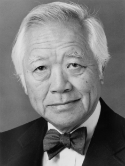Limitations of family cancer history assessment at initial surgical consultation Journal Article
| Authors: | Ruo, L.; Cellini, C.; Puig-la Calle, J.; Murray, M.; Thaler, H. T.; Quan, S. H. Q.; Guillem, J. G. |
| Article Title: | Limitations of family cancer history assessment at initial surgical consultation |
| Abstract: | PURPOSE: Although important for the diagnosis of familial clustering of colorectal cancer and hereditary nonpolyposis colorectal cancer, the accuracy of familial cancer history assessment in the office setting has been questioned. Furthermore, there are few publications describing the optimal method for accurately capturing a family cancer history. The purpose of this study was to determine how well family cancer history is assessed in patients with early age-of-onset colorectal cancer at initial surgical consultation compared with a telephone interview and mailed questionnaire. METHODS: Medical records of patients 40 years old or younger at the time of colorectal cancer surgery were reviewed for documentation of family cancer history at initial surgical consultation. In addition, family cancer history was solicited from surviving patients or their next of kin by telephone and a mailed questionnaire. The kappa coefficient was used to measure degree of correlation between family cancer history obtained at initial surgical consultation and subsequent telephone interview and questionnaire. RESULTS: One hundred twenty-five patients were available for analysis. Family cancer history was documented on the initial surgical consultation report in 78 percent of cases. Although 31.2 percent were identified as having no family cancer history at initial surgical consultation, this proportion decreased to 13.5 percent after telephone interviews and questionnaires. Family history assessment at initial surgical consultation also failed to identify 7 of 11 individuals meeting Amsterdam criteria for hereditary nonpolyposis colorectal cancer and 10 of 16 individuals meeting modified clinical criteria for hereditary nonpolyposis colorectal cancer. CONCLUSIONS: Although family cancer history was commonly obtained during the initial surgical consultation of patients with colorectal cancer, there was a tendency to underestimate the extent of familial cancer. A telephone interview and questionnaire conducted at a later date may reveal a more comprehensive family cancer history. This is an important observation, because individuals identified as high-risk for hereditary nonpolyposis colorectal cancer or familial clustering of colorectal cancer require special consideration with respect to screening, surveillance, and surgical management. |
| Keywords: | adolescent; adult; cancer surgery; cancer patient; sensitivity and specificity; colorectal cancer; reproducibility of results; family health; genetic predisposition to disease; cancer screening; health survey; questionnaires; colorectal neoplasms; patient information; family history; referral and consultation; consultation; familial cancer; high risk population; onset age; hnpcc; colorectal neoplasms, hereditary nonpolyposis; family cancer history; humans; human; male; female; article |
| Journal Title: | Diseases of the Colon and Rectum |
| Volume: | 44 |
| Issue: | 1 |
| ISSN: | 0012-3706 |
| Publisher: | Lippincott Williams & Wilkins |
| Date Published: | 2001-01-01 |
| Start Page: | 98 |
| End Page: | 103 |
| Language: | English |
| PUBMED: | 11805570 |
| PROVIDER: | scopus |
| DOI/URL: | |
| Notes: | Export Date: 21 May 2015 -- Source: Scopus |
Citation Impact
Related MSK Work







